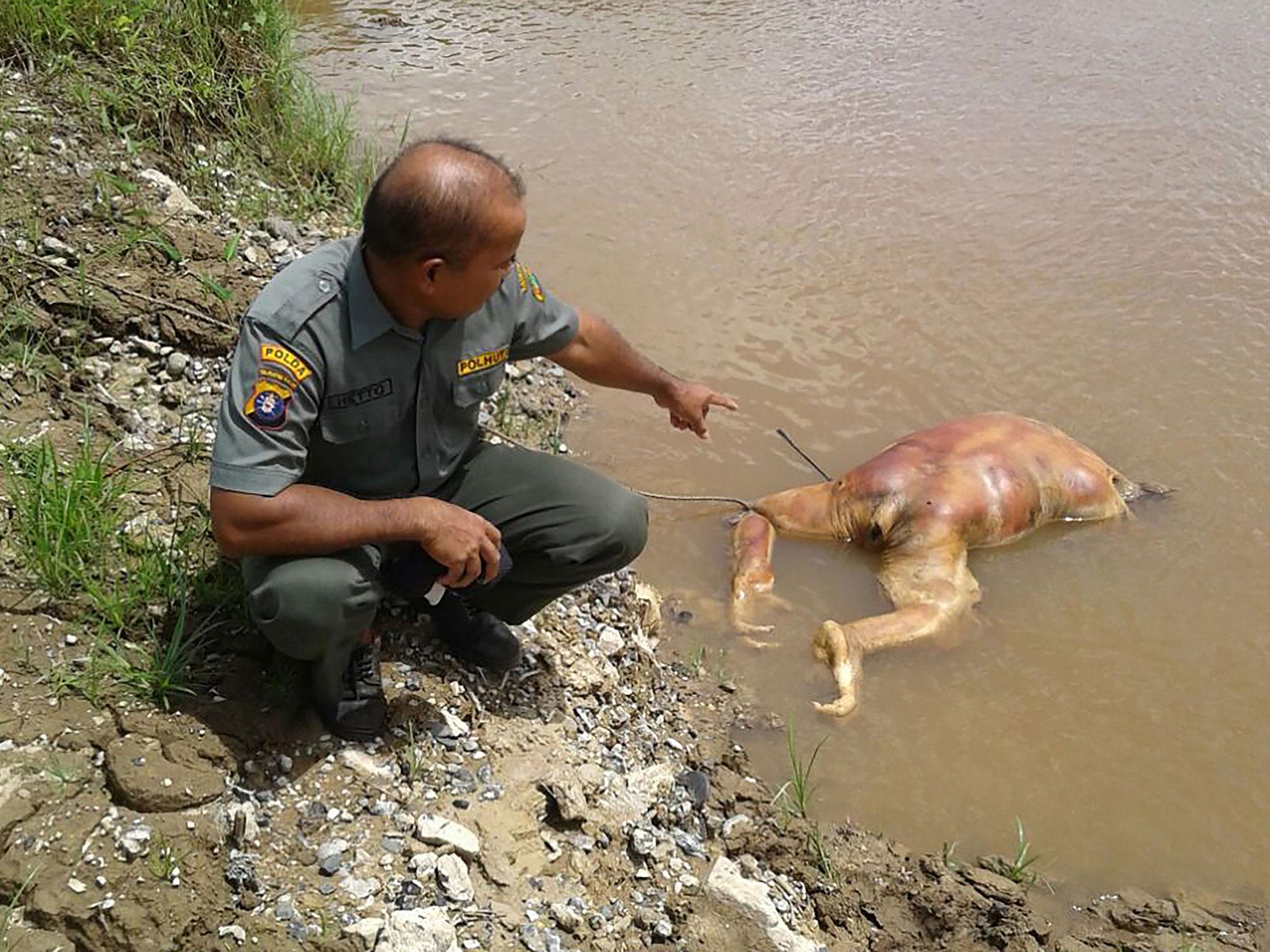Orangutan dies after being shot 130 times with air gun
Warning: Graphic images are included in this article

An orangutan was shot at least 130 times with an air gun before it died, police in Borneo said. It had also apparently been stabbed and clubbed.
It is the second known killing of one of the critically endangered species this year.
The male orangutan was spotted over the weekend, by villagers in a lake in the Kutai Timur district of East Kalimantan, in the Indonesian portion of Borneo.
Police Chief Teddy Ristiawan said the great ape was still alive when he was taken to a hospital in the town of Bontang.
It died the following day, according to the Centre for Orangutan Protection.
An X-ray showed at least 130 air gun pellets in its body, including at more than 70 in its head.
An autopsy revealed the animal had been blinded as a result of the shooting and also had 17 open wounds believed to be caused by sharp objects, the centre said. Its left thigh, right chest and left hand were bruised from blunt object trauma.
The death was a terrible event in the history of conflict between orangutans and humans in Indonesia said the centre's manager of habitat protection Ramadhani, who only goes by one name.

“The 130 pellets within the body of a primate is a new record, the most ever,” he said.
Teresa Telecky, a spokesperson for Humane Society International, told The Independent: "We are shocked by this senseless cruelty that has resulted in the suffering and death of an orangutan, a critically endangered species that is protected by national law from such harm.
"We urge relevant government officials in Indonesia to investigate the killing and prosecute the offenders to the full extent of the law."
In January, an orangutan was found decapitated and shot more than a dozen times with an air gun in Central Kalimantan.
Police arrested two rubber farmers who were suspected in the killing.
The number of orangutans in Borneo and on the Indonesian island of Sumatra, recognised as separate species and both classified as critically endangered, has fallen precipitously since the 1970s.

Orangutans are a protected species in Indonesia and Malaysia, but deforestation has dramatically reduced their habitat and brought them into contact with farmers and plantation workers who kill them to protect crops and for meat.
Around 40 per cent of Borneo’s forests have been lost since the early 1970s.
Another huge swath of forest is expected to be converted to plantation agriculture in the next decade.
Join our commenting forum
Join thought-provoking conversations, follow other Independent readers and see their replies
Comments
Bookmark popover
Removed from bookmarks